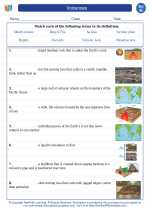Ocean
An ocean is a large body of saline water that covers a significant portion of the Earth's surface. It is a crucial part of the Earth's hydrosphere and plays a vital role in regulating the planet's climate and supporting a diverse range of marine life.
Key Facts about Oceans
- Oceans cover about 71% of the Earth's surface.
- The five main oceans are the Pacific, Atlantic, Indian, Southern (or Antarctic), and Arctic Oceans.
- Oceans are home to a wide variety of marine life, including fish, mammals, plants, and microorganisms.
- Oceans play a crucial role in the water cycle, absorbing and releasing heat from the sun and influencing weather patterns.
- Human activities, such as pollution, overfishing, and climate change, can have a significant impact on the health of the oceans.
Study Guide
1. Ocean Formation
Explain the formation of oceans, including the role of tectonic plate movement, volcanic activity, and erosion in shaping the ocean basins.
2. Ocean Zones
Describe the different zones of the ocean, including the sunlight zone (euphotic), twilight zone (disphotic), and midnight zone (aphotic), and the unique characteristics of each zone.
3. Ocean Currents
Discuss the formation and impact of ocean currents on global climate patterns and marine life, including the role of temperature and salinity in driving ocean currents.
4. Marine Ecosystems
Explore the diverse ecosystems found in the ocean, including coral reefs, kelp forests, and deep-sea hydrothermal vents, and the adaptations of organisms to these environments.
5. Human Impact
Examine the various ways in which human activities, such as pollution, overfishing, and climate change, impact the health of the oceans and the measures being taken to address these issues.
.◂Science Worksheets and Study Guides Eighth Grade. Volcanoes
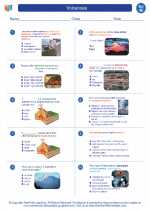
 Worksheet/Answer key
Worksheet/Answer key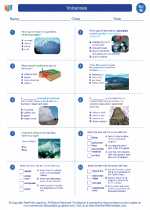
 Worksheet/Answer key
Worksheet/Answer key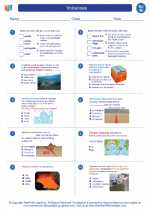
 Vocabulary/Answer key
Vocabulary/Answer key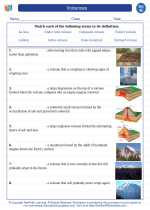
 Vocabulary/Answer key
Vocabulary/Answer key
 Vocabulary/Answer key
Vocabulary/Answer key